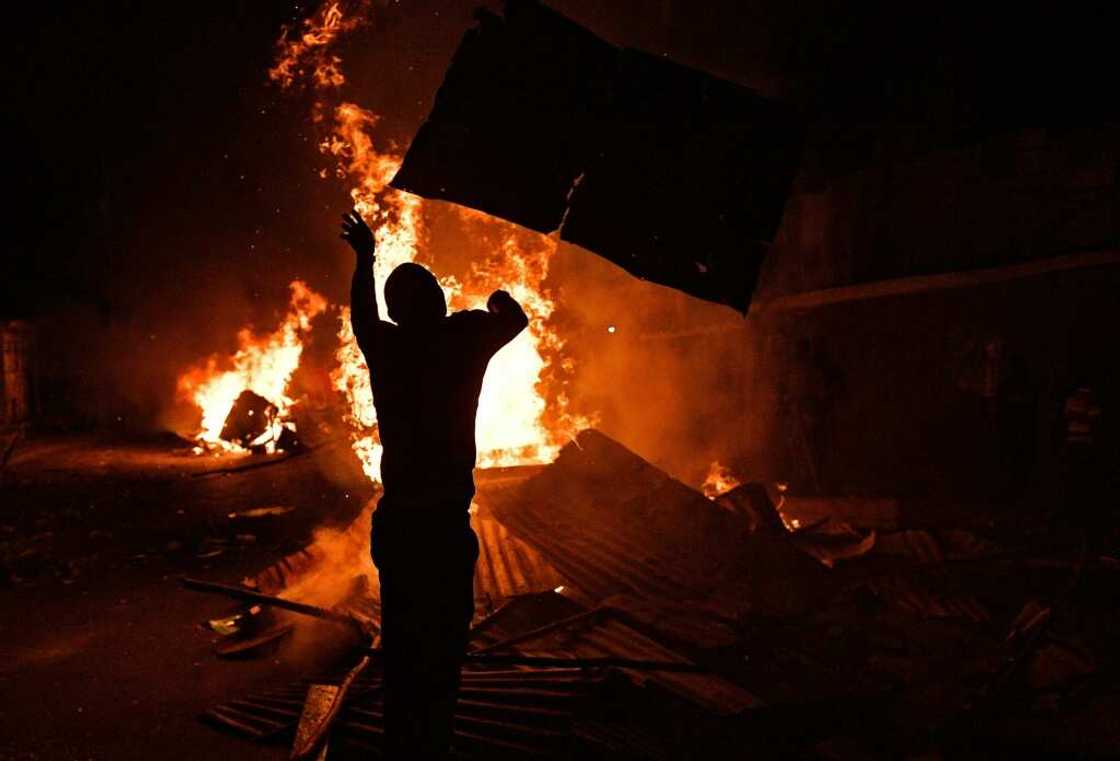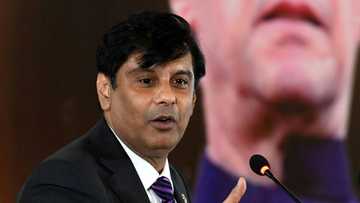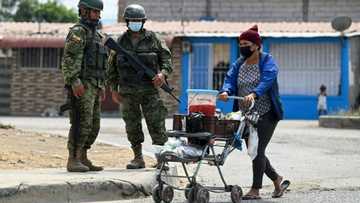Kenya charges police with crimes against humanity over 2017 violence

Source: AFP
PAY ATTENTION: Click “See First” under the “Following” tab to see Legit.ng News on your Facebook News Feed!
In a landmark decision, Kenyan prosecutors said on Friday they would charge police officers with crimes against humanity over a deadly crackdown on post-election protests in 2017.
The charges cover rape, murder and torture and include the case of a six-month-old baby girl whose death became a symbol of police brutality during the bloody election aftermath.
"This is the first case of crimes against humanity charged under Kenyan domestic law using the International Crimes Act and also the first criminal prosecution of electoral-related sexual violence," the director of public prosecutions (DPP) Noordin Haji said, without disclosing the numbers of police being charged.
The police crackdown following the disputed presidential election in August 2017 saw dozens of people killed over a four-month period.
The Kenya National Commission on Human Rights documented 94 deaths during the crisis as well as 201 cases of sexual violence and over 300 injuries -– the majority of which were attributed to security forces.
"The attacks were planned, coordinated and not random," the DPP statement said, saying various offences such as torture, rape and sexual violence "were committed by or under the authority of senior national police officers".
PAY ATTENTION: Subscribe to Digital Talk newsletter to receive must-know business stories and succeed BIG!
The baby, Samantha Pendo, died after being beaten by police during a raid on her house as protests flared in the western city of Kisumu.
Extra-judicial killings are rife in Kenya, and justice is rare with few examples of police being held to account.
'Groundbreaking' decision
The new UN High Commissioner for Human Rights, Volker Turk, welcomed the "groundbreaking" decision, saying it was "an important advance towards accountability for gross human rights violations in Kenya."
The move "is a positive step towards justice and accountability for survivors and families of victims, including in the context of electoral violence, and can strengthen prevention of future violations," Turk said in a statement.
A Kenyan inquest in 2019 had found five police commanders liable for Pendo's death.
Kenyan police are often accused by rights groups of using excessive force and carrying out unlawful killings, especially in poor neighbourhoods.
They have also been accused in the past of running hit squads targeting those -- including activists and lawyers -- investigating alleged rights abuses by police.
The 2017 protests erupted after victory was declared for then president Uhuru Kenyatta, angering supporters of his rival, the veteran opposition leader Raila Odinga.
The result was annulled by the Supreme Court after a challenge by Odinga, but he boycotted the rerun which was won by Kenyatta.
According to Missing Voices, a campaign group focused on extrajudicial killings in Kenya, there have been 1,264 deaths at the hands of police since it began collecting data in 2017.
Source: AFP




